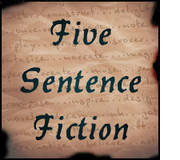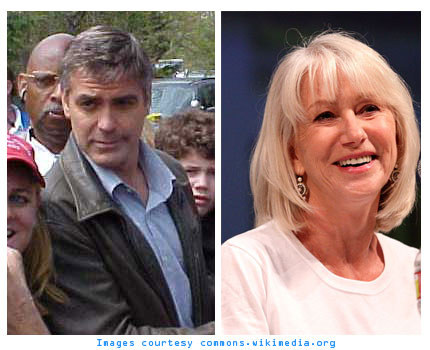by Mayumi-H | Jan 26, 2013 | Persona 4 Fan Fiction, Short Stories

 I’m doing another double-up of writing prompts this week (because I’m not-so-secretly a masochist, I guess): for Lillie McFerrin’s Five Sentence Fiction prompt (“RINGING“), and Julia’s 100 Word Challenge for Grown-Ups prompt (“…the extreme weather meant….“, week 74). Since we’re to incorporate this specific phrase in Julia’s prompt, we’re allowed to go to 104 words, as opposed to the usual 100; Lillie’s guideline, as always, is to write the story in five sentences.
I’m doing another double-up of writing prompts this week (because I’m not-so-secretly a masochist, I guess): for Lillie McFerrin’s Five Sentence Fiction prompt (“RINGING“), and Julia’s 100 Word Challenge for Grown-Ups prompt (“…the extreme weather meant….“, week 74). Since we’re to incorporate this specific phrase in Julia’s prompt, we’re allowed to go to 104 words, as opposed to the usual 100; Lillie’s guideline, as always, is to write the story in five sentences.
We’re suffering from some extreme weather of our own out here, with temperatures dropping well into the teens (that’s c-c-c-cold, for us), so my head went instantly to winter storm conditions, of which I have my fair share of personal experience. Of course, there are all kinds of storms….
“Storm Warning”

Robert Salmon (1775-circa 1851), via Wikimedia Commons [public domain]
Any moment, now, she’d stagger in, drenched and pale from fatigue, then become delightfully surprised by his quaint, candlelit effort…even if those candles were swiftly burning away. The extreme weather meant the whole lifeboat squad was out tonight, but they’d be back soon, and he’d have her to himself, tonight, and forever.
A knock; it wasn’t her, but her captain, looking drenched, pale: “You’d best sit down, son….”
He stumbled, the rest of the words drowning in the ringing in his head.
***
Sorry to go so dark, here. I wrote several versions of this post, and they were all similarly grim. I suppose the prompts just led me down that road.
Incidentally, does anyone else write multiple efforts for these prompts, until the “right one” clicks? If not (or if so), how did the extreme weather affect you, this week? Did you ring another kind of bell? Feel free to let me know!
by Mayumi-H | Jan 2, 2013 | Persona 4 Fan Fiction, Short Stories
I’m doubling-up on prompts again! (Why not start the year off right?)
Lillie McFerrin’s Five Sentence Fiction prompt is “ENDING” and week 71’s prompt for the 100-Word Challenge for Grown-Ups over at Julia’s Place is “…as midnight struck….”
As a side note, I rarely put forward for Julia’s challenges anything I personally would deem above and/or beyond the PG rating certificate (Lillie’s challenge comes with no caveat about rating, though I think we police ourselves well enough), but I’m rather liberal about mature subjects, myself. I leave you to be the judge if this is inappropriate.
“Between Them”

The first time they heard midnight strike together, there was just the job between them: script, soundtrack, timecode, a story due by deadline.
The second time it happened, though, they passed between them their own stories, of husbands, wives, and wanton regrets, kept secret until that moment.
By the third, between them there was nothing at all, save the taste of wine on fevered lips…and prospects of forever whispered in his dark hotel room.
So, on the fourth, while still wrapped around each other, he asked the question smoldering between them. And, in his bed, as midnight struck, she answered with a kiss.
I’ve stayed away from Robb and Emma for a while, but this double-edged sword of a mixed prompt plucked at my heartstrings a bit too much to ignore.
What ENDING did you create? What happened when midnight struck? Let me know!
by Mayumi-H | Dec 1, 2012 | Persona 4 Fan Fiction, Short Stories, Songbirds

It’s Week 68 for Julia’s 100-Word Challenge for Grown-Ups! This week, Julia gives us the prompt of:
GREY
We’ve got 100 words to use to interpret the prompt, so, here’s mine:
“Fade to Grey”
“I made this,” Billie declared, as she sorted through ornaments. “And this-”
“I made that,” Katie corrected, snatching at the yarn doll.
Chuckling, Sally turned, to catch Larry’s reaction. He wasn’t watching the girls, though, but staring at his reflection in a tiny glass ball.
“What’s wrong?” she asked softly.
He ran his fingers through his fringe, frowning. “I’m going grey.”
Sally hummed. Growing old didn’t appeal to her, either. Although, the idea of growing old with him charmed. So, pulling at one pale strand with a grin, she teased, “I made this.”
Larry blinked, then laughed. “You certainly did!”
Let’s admit it: no one really wants to get older, see those lines and fading colors in the mirror. But, when you find someone worth the time and effort, it makes the changes seem not quite so terrible as they might otherwise be.

George Clooney and Helen Mirren: proof you can go grey and still be awesome.
This story is one rather close to my heart, as today marks the fifteen-year anniversary of when my husband and I met. (Fifteen years! Oftentimes, it feels more like fifteen minutes. …underwater. No, no; just kidding!)
Personally, I see more grey in the mirror every day. But, like my Songbirds above, I’ve managed to find someone with whom the prospect of growing older doesn’t seem so scary.
What does “GREY” mean to you?
by Mayumi-H | Aug 13, 2012 | Excerpts, Fearless, Persona 4 Fan Fiction, Process
As much as I enjoy delving into the heady depths of a good romance, one of my favorite parts of examining relationships is the dance of early affection between two characters. While not necessarily innocent (especially from a player’s point of view), it’s often full of a plain and refreshing simplicity:
![320px-Iris_'Dancer's_Veil' By A. Barra (Own work) [GFDL (http://www.gnu.org/copyleft/fdl.html) or CC-BY-SA-3.0-2.5-2.0-1.0 (http://creativecommons.org/licenses/by-sa/3.0)], via Wikimedia Commons](https://mayumi.amorphous.press/wp-content/uploads/sites/4/2012/08/320px-iris_dancers_veil.jpg?w=300)
They simply walked and talked: about the streets and shops, at first, but – as the steps wore on – about less random and more personal things. Such as the kinds of music they liked (she enjoyed an eclectic mix of dance hall, pop, and classical, while he favoured straight-up guitar rock, funk, and electronica), to what sorts of television programmes they preferred (she swooned over period masterpieces with the same affection he held for episodic science fiction, though they were both fans of detective dramas of any sort), to what foods they liked to eat (he was a lenient vegetarian, whereas she adored rare steak…but both of them found tandoori takeaway too scrumptious to ever pass up).
All along the way, Ross found himself becoming more and more curious about discovering what made pretty, perky, adorably sexy Amber Baelin tick, that he almost forgot how easily she could set his nerves on fire. Until they approached the heavy wooden door of the narrow two-storey row house she called home, that is, because it meant their time together was over.
I’ve occasionally spent a good deal of time with two would-be or could-be lovers breaking through the initial barriers of mutual ignorance. But, for this story, I felt the time would be better spent on the more pressing conflicts of self-doubt, past heartaches, and unexpected physical limitations. Still, it’s always fun to imagine how two characters can come together.
Someone might say that this is too much outright “telling” for a story. As for me, I like to think these smaller details are just icing on a bigger cake I’m trying to “show.”
How do you approach the blossoming of love in your stories? Or, do you think it’s just a bunch of rubbish, and bring on the bodycount?
by Mayumi-H | Aug 11, 2012 | Persona 4 Fan Fiction, Process
I follow a lot of people on Twitter. Most of them, I follow for fun: they’re insightful, amusing, friendly folk. But some are on my “understanding the business of writing” list: agents, editors, writers, publishers. Some of these people offer the same insightful, amusing, friendly 140-character glimpses into their daily lives that the others do. But, lately, I’ve seen a trend of negativity in this latter crowd that makes me wonder if I’m right for this want-to-be-published storytelling game.
One person offered up a tweet that was basically, “Don’t send me your manuscript if…” Another said, “Don’t expect me to read your book if…” A third mentioned, “Don’t even think of querying me if…”
Many of these “don’ts” are valid, valuable points to know and understand…but I’ve gotten a bit fed up with seeing so many “don’ts” all over the place. As someone who’s chosen an art (storytelling) for a personal outlet, I’ve had to deal with a lot of naysaying and doubts already, and it does very little for one’s sense of self-worth to be told “Don’t” all the time.
So, I’ve decided to share in this space my list of “dos.” Hopefully, at least one of these will help you get through your slower days.
- Do be engaged with your own story. Love it, to help it grow beyond those scratchings of loose plot outlines and vague character sketches.
- Do respect your readers’ intelligence. The good ones want and deserve a story worth the time of picking up and reading.
- Do finish your story, even if that first ending isn’t all you’d hoped and dreamed. Qualification and strength of your story will come from revision, but you can only get to the point of revision if you manage to finish the story first.
- Do try your best. You will be more proud and pleased with your story if you know you’ve given it your all. Other people will see it, too!
- Do listen to critique. You won’t be able to please everyone, of course, but any well-thought critique is worth considering.
- Do remember that this is your story. Write it for you, first. If your goal is publishing and making millions, you may have to revise parts (or all) of it…but it should always remain your story at its core.
And, most importantly:
![Surfer_girl_(2_of_2) By Thomas Tolkien (Flickr: Surfer girl (2 of 2)) [CC-BY-2.0 (http://creativecommons.org/licenses/by/2.0)], via Wikimedia Commons](https://mayumi.amorphous.press/wp-content/uploads/sites/4/2012/08/256px-surfer_girl_2_of_2.jpg)
I had to link to this in honor of my surf mentor, Fiona. 🙂
Photo by Tom Tolkien.
by Mayumi-H | Jul 9, 2012 | Excerpts, Fearless, From Hell (A Love Story), Persona 4 Fan Fiction, Process
Warning: I’ve tried to keep it clean, but discussion of mature themes to follow.
“It’s been a while, hasn’t it?” Venus guessed. “Since you two have…been together?”
Ross paused, hand hovering over the electric kettle. “A bit,” he admitted.
She offered him a slow nod, glancing down at the edge of the counter space, where there was a stash of pens and a flip-pad scribbled with future meal notes. “Well, sex shouldn’t be the most important thing in a relationship.”
He shook his head as he filled the kettle with water. “I know that-”
“But it is important,” she said, and here Ross raised his head in quiet surprise.
I’ve never shied away from sexual situations in my stories. I don’t consider a sex scene in and of itself pornographic, though it can certainly be used for that purpose. In most of my stories (as in life), sex is a way for two people to communicate beyond the use of words; the intense intimacy forged by being sexual with another person creates all sorts of interesting conflicts and realizations.
Venus, here, is stating my own opinion: Sex should not be the most important aspect of a relationship. But it is important.

Sexual compatibility can mean different things for different people. A couple with low libidos may have sex once a month…and it will be wonderful every single time. A couple with strong libidos may have sex once a day…and that can be beautiful every single time, too. Relationships are as unique as the people in them, and it’s the part of stories I really enjoy examining.
I like a sex scene to mean something, though. A conflict of interests. A learning experience. A personal enlightenment. Even a casual or detached sex scene can have important meaning for a character, at that moment in the story. I like using all of these approaches to sex in my stories.
What I’ve been enjoying with this latest endeavor, though, is the fade-to-black, or glossing, technique. Sex for its own sake doesn’t do anything for a story; I’ve always agreed with that. But sex also doesn’t have to happen “on-screen” for it to be worthwhile to a character’s or relationship’s development.
For Fearless, let’s say there are four sex scenes that are important for the development of the plot. Does that mean the characters have sex only four times in the story? Hell, no! But, I can show in a paragraph – or a sentence – what’s happening between them, without going into detail. I know what’s going on; the reader knows what’s going on. And I can get to the really important part – the ramifications or repercussions of that sex scene – that much more quickly, than if I delved into the detail.
Some writers and readers don’t like sex in their stories. That’s fine. I do like sex, though, when it means something. Just like in real life.
How do you feel about sex in stories?
 I’m doing another double-up of writing prompts this week (because I’m not-so-secretly a masochist, I guess): for Lillie McFerrin’s Five Sentence Fiction prompt (“RINGING“), and Julia’s 100 Word Challenge for Grown-Ups prompt (“…the extreme weather meant….“, week 74). Since we’re to incorporate this specific phrase in Julia’s prompt, we’re allowed to go to 104 words, as opposed to the usual 100; Lillie’s guideline, as always, is to write the story in five sentences.
I’m doing another double-up of writing prompts this week (because I’m not-so-secretly a masochist, I guess): for Lillie McFerrin’s Five Sentence Fiction prompt (“RINGING“), and Julia’s 100 Word Challenge for Grown-Ups prompt (“…the extreme weather meant….“, week 74). Since we’re to incorporate this specific phrase in Julia’s prompt, we’re allowed to go to 104 words, as opposed to the usual 100; Lillie’s guideline, as always, is to write the story in five sentences.






![320px-Iris_'Dancer's_Veil' By A. Barra (Own work) [GFDL (http://www.gnu.org/copyleft/fdl.html) or CC-BY-SA-3.0-2.5-2.0-1.0 (http://creativecommons.org/licenses/by-sa/3.0)], via Wikimedia Commons](https://mayumi.amorphous.press/wp-content/uploads/sites/4/2012/08/320px-iris_dancers_veil.jpg?w=300)

![Surfer_girl_(2_of_2) By Thomas Tolkien (Flickr: Surfer girl (2 of 2)) [CC-BY-2.0 (http://creativecommons.org/licenses/by/2.0)], via Wikimedia Commons](https://mayumi.amorphous.press/wp-content/uploads/sites/4/2012/08/256px-surfer_girl_2_of_2.jpg)

Recent Comments